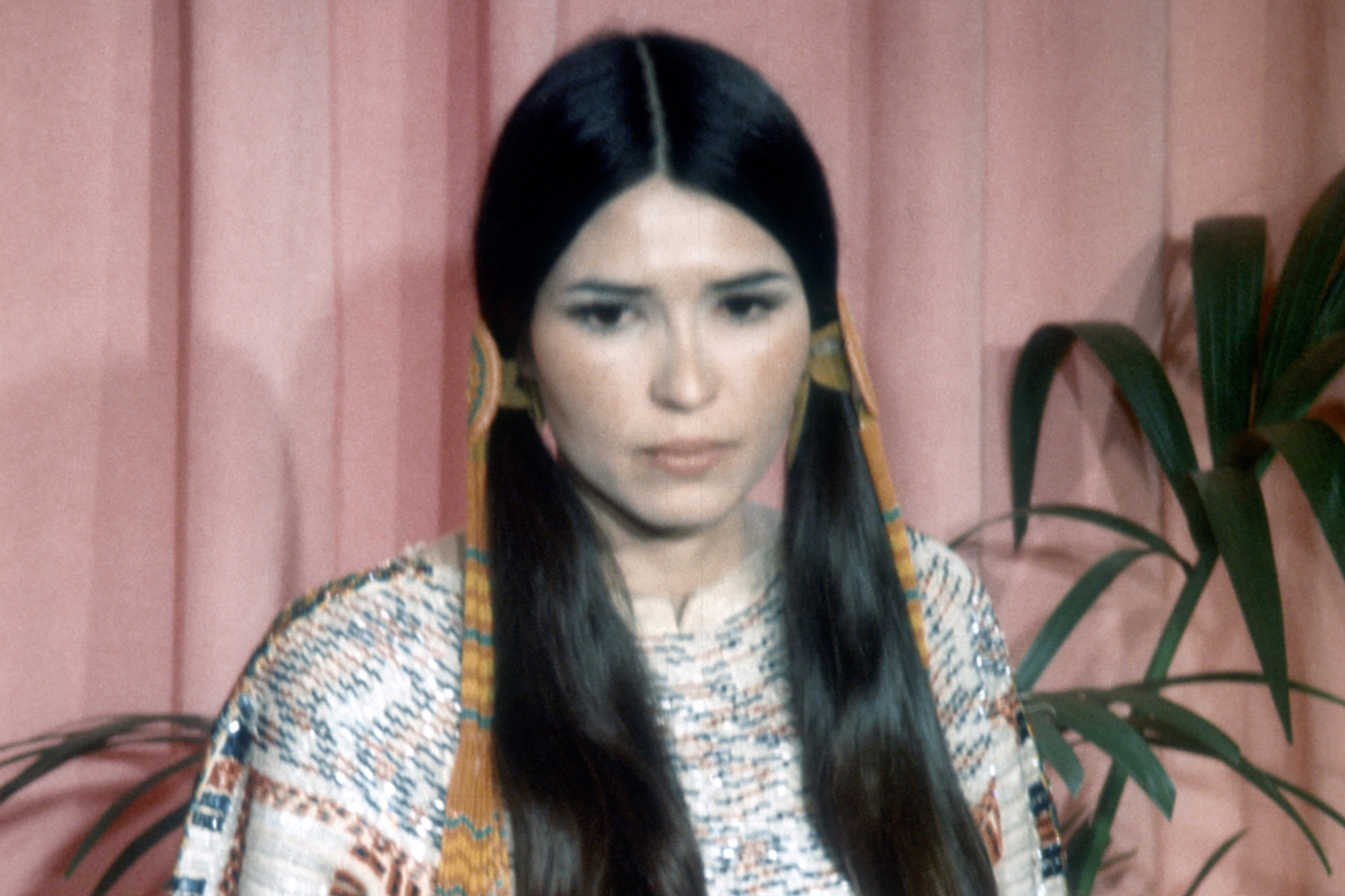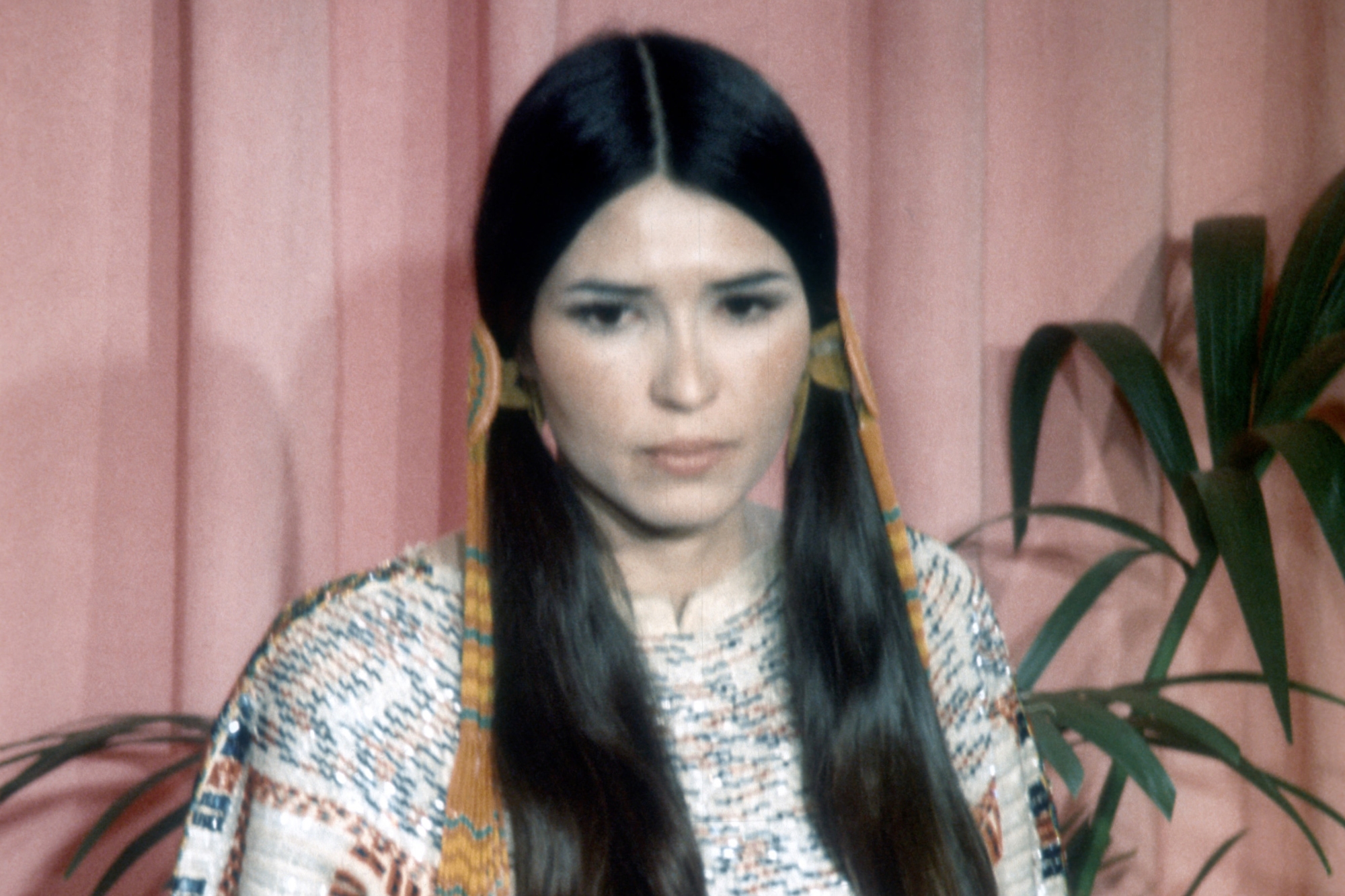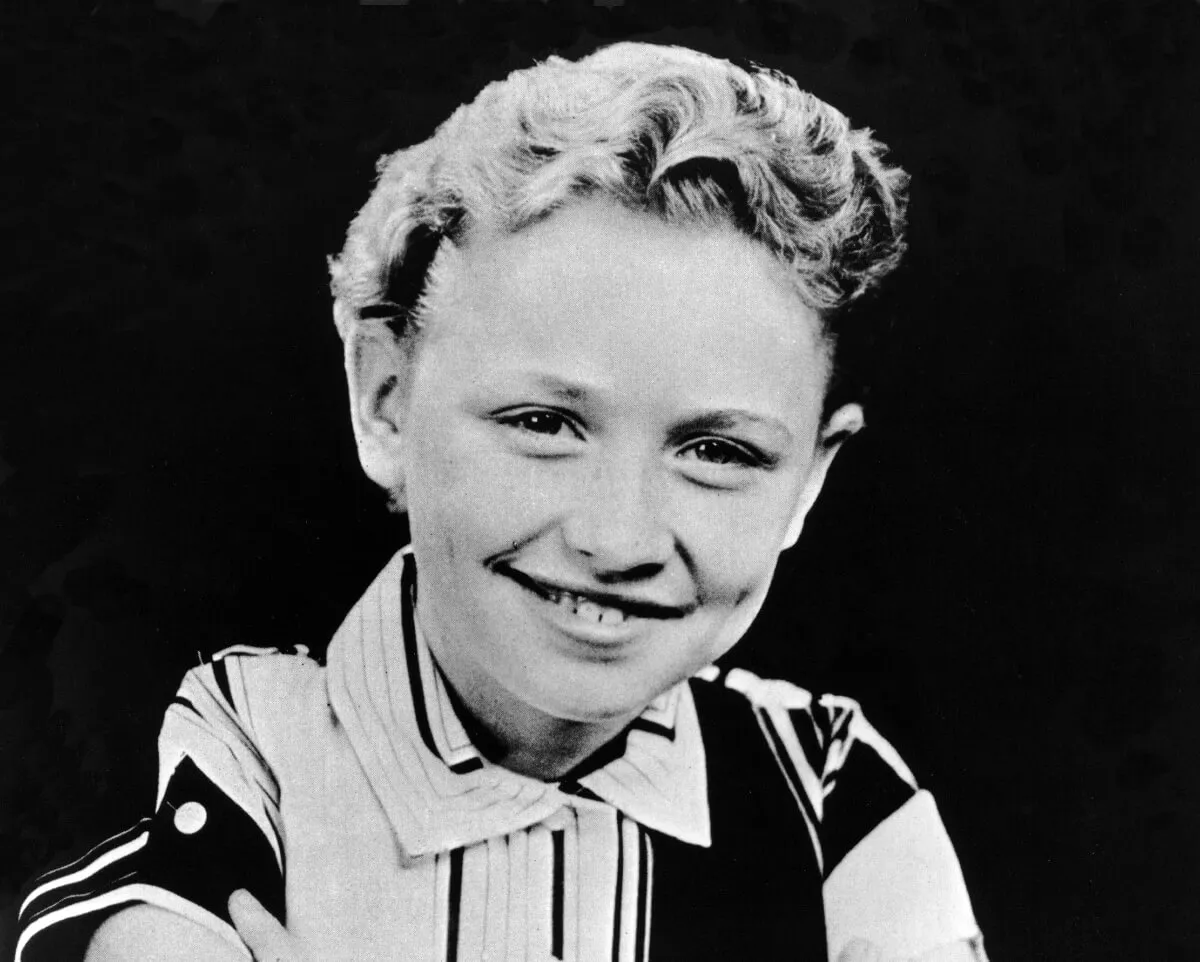
Academy Apologizes to Sacheen Littlefeather for 1973 Oscars Mistreatment, Where John Wayne Nearly Stormed the Stage
Sacheen Littlefeather displayed incredible bravery at the 1973 Oscars. She ensured that the world would hear her powerful words, but it would come with backlash. The room certainly didn’t give her a warm welcome, and her career as an actor went down the drain. However, the Academy of Motion Picture Arts and Sciences finally came forward with an apology to Littlefeather for her mistreatment at the Oscars.
Sacheen Littlefeathers endured mistreatment at the 1973 Oscars

Littlefeather previously detailed her experience at the 1973 Oscars for The Globe and Mail. She took the stage in place of Marlon Brando winning Best Actor for his performance in The Godfather. He boycotted the event in response to Hollywood’s treatment of Native American artists and to make a statement on the Wounded Knee Occupation.
However, many folks didn’t take too kindly to that. Littlefeather explained how “half booed and the other half listened, and said, ‘Let her speak.'” Additionally, some Hollywood stars openly opposed her presence, her words, and Brando’s decision to boycott. Western actor John Wayne was waiting backstage, who Littlefeather said “had to be restrained by six security men” to keep him from charging her on the stage.
The Academy of Motion Picture Arts and Sciences issues an apology
According to The Hollywood Reporter, the Academy is finally coming forward with an apology to Littlefeather after her mistreatment at the 1973 Oscars. Read on below for their official letter:
Dear Sacheen Littlefeather,
I write to you today a letter that has been a long time coming on behalf of the Academy of Motion Picture Arts and Sciences, with humble acknowledgment of your experience at the 45th Academy Awards.
As you stood on the Oscars stage in 1973 to not accept the Oscar on behalf of Marlon Brando, in recognition of the misrepresentation and mistreatment of Native American people by the film industry, you made a powerful statement that continues to remind us of the necessity of respect and the importance of human dignity.
The abuse you endured because of this statement was unwarranted and unjustified. The emotional burden you have lived through and the cost to your own career in our industry are irreparable. For too long the courage you showed has been unacknowledged. For this, we offer both our deepest apologies and our sincere admiration.
We cannot realize the Academy’s mission to “inspire imagination and connect the world through cinema” without a commitment to facilitating the broadest representation and inclusion reflective of our diverse global population.
Today, nearly 50 years later, and with the guidance of the Academy’s Indigenous Alliance, we are firm in our commitment to ensuring indigenous voices—the original storytellers—are visible, respected contributors to the global film community. We are dedicated to fostering a more inclusive, respectful industry that leverages a balance of art and activism to be a driving force for progress.
We hope you receive this letter in the spirit of reconciliation and as recognition of your essential role in our journey as an organization. You are forever respectfully engrained in our history.
With warmest regards, David Rubin
President, Academy of Motion Picture Arts and Sciences
Sacheen Littlefeather issues a response to her Oscars experience
Littlefeather spoke with The Hollywood Reporter regarding the 1973 Oscars apology.
“I was stunned,” Littlefeather said. “I never thought I’d live to see the day I would be hearing this, experiencing this. When I was at the podium in 1973, I stood there alone.”
Additionally, the Academy Museum will read the apology on Sept. 17.
“You know, I never stood up onstage in 1973 for any kind of accolades,” Littlefeather said. “I only stood there because my ancestors were with me, and I spoke the truth … Yes, there’s an apology that’s due. As my friends in the Native community said, it’s long overdue.”
Littlefeather continued: “I could have been dead by now. All of my friends – [activists] Dennis Banks, Russell Means, John Trudell, [comedian] Charlie Hill – are gone.”
She added that her ancestors likely spoke with the hecklers on her behalf, including her husband, Charles Koshiway, who died of blood cancer: “I’m sure Mr. Charles went over there and had a talk with them immediately. I’m sure his first target was John Wayne.”
Littlefeather is “happy” to see other Native Americans “breaking down the doors.”


